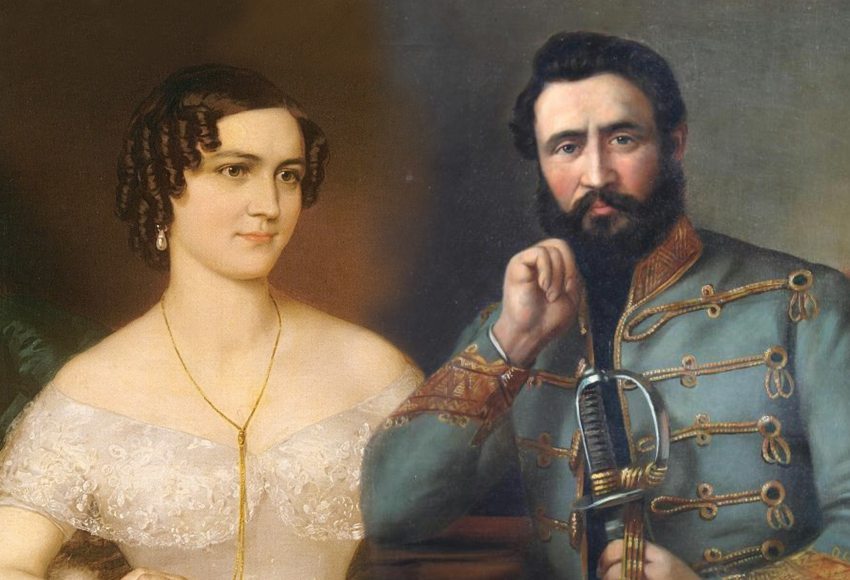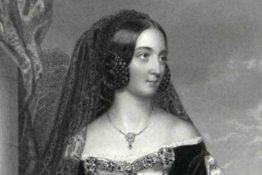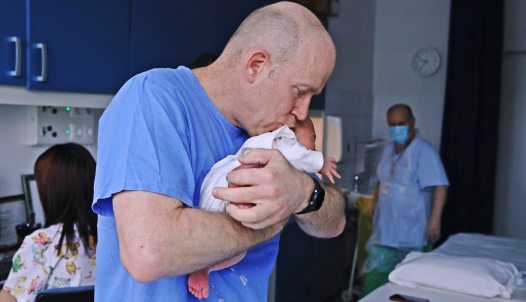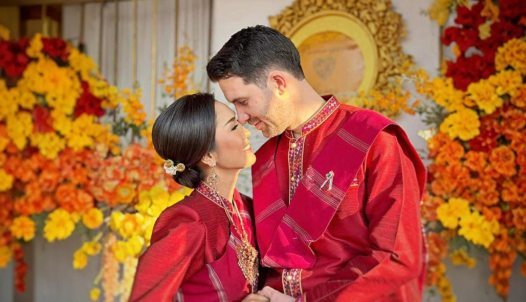Love and war for independence – the story of the first martyr of Arad and his wife’s was one for the books
An 18-year-old girl became the wife of one of the most talented officers of the 1848-49 War of Independence and the 87 days of their married life took her on a daring, dangerous, and adventurous journey. Her husband, Norbert Ormai, was for a long time the black sheep of history. He committed treason twice, and his military career rose until the reprisals of 1849. Their love barely blossomed in the shadow of arms - yet it lived on.

Norbert Ormai has gone down in history not only as the first martyr of Arad but also for his exciting life. He was born on 28 May 1813 in Dobřany, Czech Republic, into an Austrian military family with the surname Auffenberg. He changed his name to the Hungarian-sounding Ormai in December 1848, expressing his enthusiasm for the Hungarian nation and the Hungarian struggle for independence. His father worked as a cavalry master in the Austrian army and served in Hungary for several years, so his son completed his primary education in Pest. Norbert decided at an early age that he wanted to pursue a military career, which became a reality in 1828.
He was promoted to second-lieutenant in 1838, but he must have carried a hatred of the Habsburgs in his guts because in 1840 he was involved in a Polish conspiracy in Galicia, which was exposed because of the treachery of a fellow officer. He was arrested along with 16 others. He spent seven years in remand prison, was sentenced to a further 14-years imprisonment, and was imprisoned in the castle of Munkács (Mukachevo). He was released on amnesty on 2 May 1848, when the Batthyány government, formed after the revolution, granted amnesty to political prisoners. No wonder that Ormai then enthusiastically supported the Hungarian War of Independence, joining Mieczysław Woroniecki's volunteer troops in Pest, where he served first as a lieutenant and then as a captain.
In June 1848, he sent a letter to Lázár Mészáros, Minister of War, in which he offered his service for the country: 'I feel with all my heart and soul the call of my homeland, and for it I will sacrifice my last drop of blood...'
Soon after, he was promoted to major. In December 1848, Lajos Kossuth entrusted him with the task of setting up a Fighter Wing, which later became the governor's permanent bodyguard. Later, he continued to increase the numbers of the Hungarian army with great talent, recruiting almost eight thousand soldiers to strengthen the War for Independence. Lajos Kossuth mentioned him in his later memoirs: "Colonel Ormai's love of freedom, his hatred of tyranny, his chivalrous feeling for the oppressed, and his heroic resignation to sacrifice were inherited from his father, and these feelings were combined with the most sublime strength of character, which, as was shown by his conduct before the so-called court-martial, which sent him to his death, rose to the loyalty of principle and steadfastness reminiscent of the most beautiful characters of classical antiquity. "
However, Norbert Orlai, with his charming looks and wit, won the sympathy and support not only of the leader of the freedom struggle but also of the women around him, especially the wives of his superiors, such as Kossuth's wife and sister, much to the envy of his contemporaries, who attributed his rapid rise in the ranks to the influence of women. But his excellent skill in military organization was recognized even by his envious peers.
Love at first sight
In 1849 he was given the task of organizing new regiments. It was then that he met Lajos Rozsváry (Kornhofer), who, at 46, was the oldest member of his regiment. The aging gentleman, in his respect for Ormai, invited him to his café in Nagyvárad (Oradea). The Colonel gladly accepted the hospitality and left for Oradea on 19 March 1849.
On that day, the commander was captivated not only by the atmosphere of the café but also by Lajos Rozsváry's daughter Vilma. The young girl, only 18 years old, had already been through a bad marriage. According to locals, her gambling addict husband had literally "gambled her away".
The first meeting awakened deep feelings in both of them. Ormai, who was 36 at the time, did not hesitate to ask Vilma out that very evening.
The officer walked the young girl home from a walk on the Kőrös beach holding her hand.
From a rendezvous to the altar
After the events in Oradea, events accelerated not only between Norbert and Vilma, but also in the country. By this time, the alliance between Franz Joseph and Tsar Nicholas I, whose aim was to put an end to the Hungarian War of Independence, was already evident. However, the new lovers tried to ignore this and spent as much time together as possible, and when they were apart, a courier brought their love letters almost daily. Just over two months after they met, on 27 May 1849, Norbert Ormai married Vilma Rozsváry – but to be able to do so, they had to convert from Catholicism to Calvinism because of Vilma's previous marriage. Meanwhile, Norbert's military career was soaring, and on 25 April Kossuth promoted him to colonel.
A verdict that ruined a fulfilling love
On 7 August, from Pankota the colonel reported sick to his superiors and resigned from his rank. Haynau had already begun to crack down on the war for independence, sending reconnaissance teams into the country with the aim of arresting anyone who had taken part in the uprising in any way. On 12 August, Ormai was also caught, captured, and transported to Gyula as a prisoner. On 21 August, he was allowed to go to Arad to surrender himself.
He had to leave his pregnant wife behind. The next day, Haynau's court sentenced him to death by hanging.
"The day before yesterday I began the business, I hanged a man named Auffenberg, who was once a lieutenant in the Mazzuchelli regiment, and later became a colonel and Kossuth's assistant officer – he will be followed by Kiss, Leiningen, Poeltenberg, Vécsey, etc., as soon as they arrive. The procedure will be as short as possible. We’ll determine about the person if he has served with us as an officer and has done armed service in the rebel army. The proceedings will thus be completed as soon as possible (...) There will be no more revolutions in Hungary for a century, if necessary I guarantee it with my head, if necessary because I will root out the weed," Haynau wrote after the man's execution.
Cheating for survival
After her husband's death, Vilma did everything she could to ensure that her unborn child would not be stigmatized because of her father. She felt that she had reached a dead end, as the name Ormai would have betrayed her, but she could not use her maiden name either, as this would have made her son illegitimate. So she devised a cunning plan: she had to find someone with the same surname as her husband who would be willing to take on the role of father. In this way, he would remember his love, but the truth would never come out.
With the help of her friends, she found a landlord, József Ormay. They approached him and explained the gravity of the situation. At first, he refused the deal. He feared imprisonment for being caught and, as a believer, damnation for fraud, but Vilma managed to persuade him with a large wad of money and a serious promise.
Vilma made a promise to József that she would never, under any circumstances, reveal the identity of her child's real father, and she felt it safer to leave the country after the birth.
József not only accepted the offer but also married Vilma. Norbert József Ormay was born on 28 February 1850 and, thanks to the wedding, was baptized according to the laws of the Catholic Church – with a surname spelled with a ’y’ at the end.
The widow who exiled herself to the other side of the world
After the child was born, Vilma kept her part of the bargain: she left the country and went to Constantinople alone, leaving her son with relatives. In Constantinople, she met a wealthy Brazilian plantation owner, whom she married soon afterwards in Brazil, and sent money home to raise her child. Little Norbert's step-parents never spoke to him about the War of Independence or his real parents, avoiding the subject as a taboo. After the Great Compromise, the widowed Vilma is said to have visited Hungary and even settled in Wiesbaden, where she died in 1884, aged 53. Before her death, she had arranged for her large fortune to be bequeathed to her son. This is how the son of the first martyr of Arad, then 35 years old and working as a civil servant, learned the story of his origins in 1885. The huge inheritance turned the life of the family, who had lived modestly until then, upside down. He left his job and travelled to Texas with his wife and two sons, bought a farm, and started raising and trading cattle - but his is another, equally adventurous story.
Resource:
https://hu.wikipedia.org/wiki/Ormai_Norbert
https://mek.oszk.hu/06100/06162/html/aradiv02845/aradiv02845.html
https://mult-kor.hu/ki-volt-az-zvegy-aki-az-elso-aradi-vertanut-gyaszolta-20180914
https://mult-kor.hu/az-elso-aradi-vertanu-zvegye-20180820
http://amulok.blogspot.com/2014/03/texas-es-vegul-del-brazilia-nekem.html







